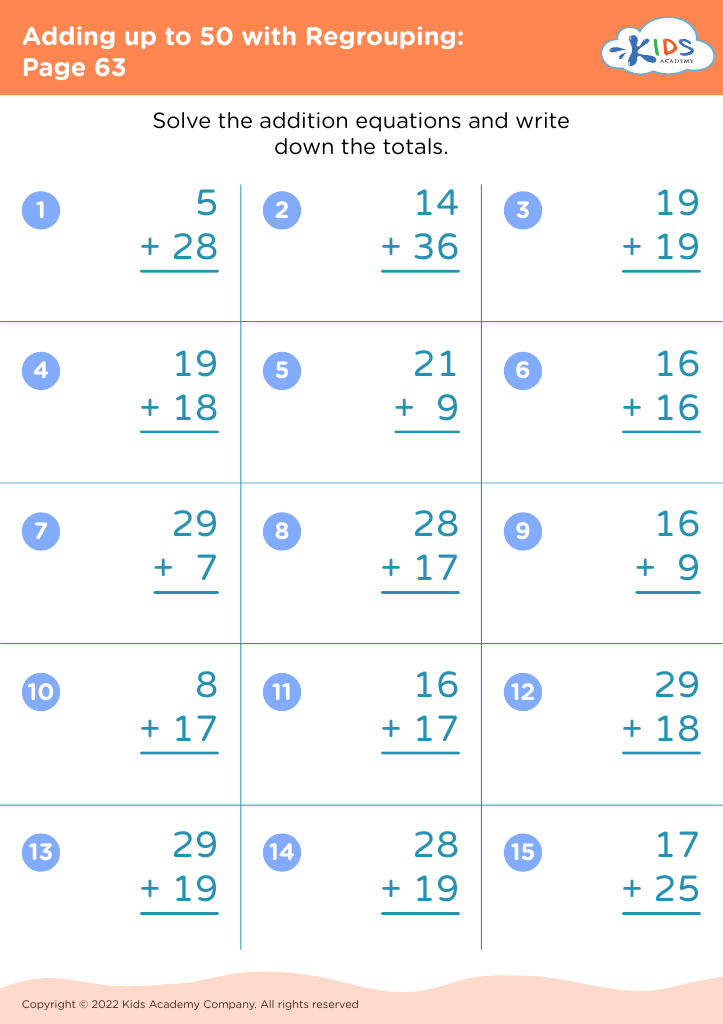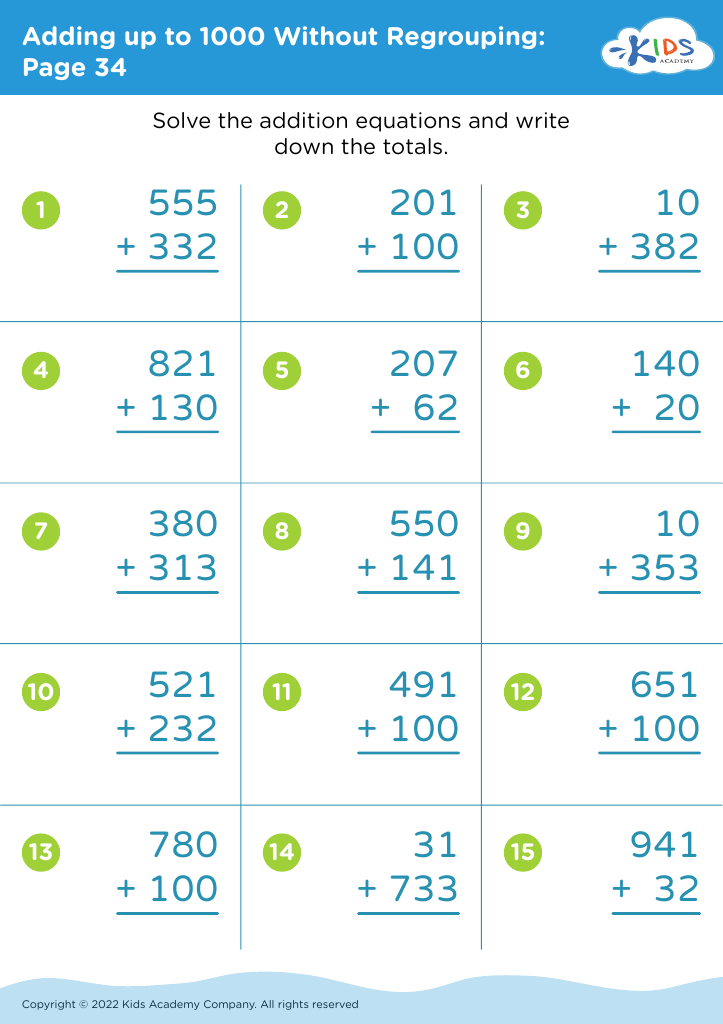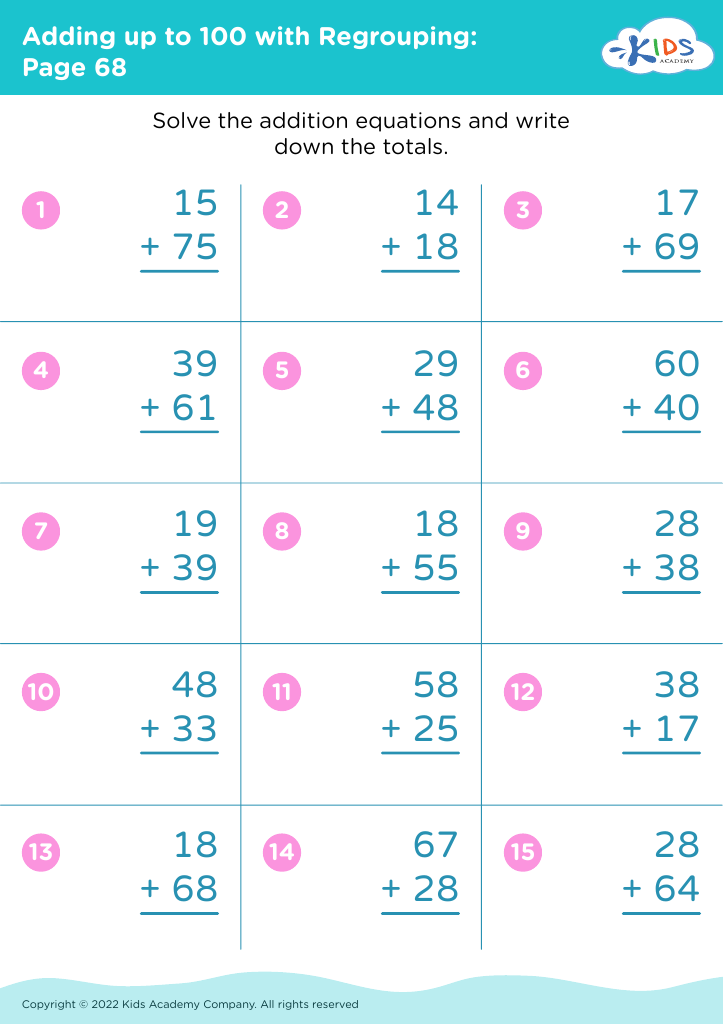Understand subtraction Addition Worksheets for Ages 7-8
6 filtered results
-
From - To
Enhance your child’s math skills with our "Understand Subtraction Addition Worksheets" designed for ages 7-8. These engaging worksheets provide clear explanations of the relationship between addition and subtraction, helping young learners grasp critical concepts easily. With a variety of interactive exercises, children can practice problem-solving techniques, improve their math fluency, and build confidence in their abilities. Our resources are crafted to align with educational standards, ensuring a comprehensive learning experience. Discover the joy of math through fun and challenging activities that make subtraction and addition come alive! Perfect for home practice or classroom use. Start your child’s math journey today!
Understanding addition and subtraction is crucial for children aged 7-8, as these foundational skills are the building blocks for all future math learning. At this age, kids start encountering more complex concepts, such as multiplication, division, and fractions, which directly rely on their fluency in addition and subtraction. Mastering these operations enhances cognitive skills and logical reasoning, fostering problem-solving abilities that extend beyond math into real life.
Moreover, when parents or teachers invest time in ensuring comprehension of these concepts, it boosts children's confidence and academic motivation. A solid grasp of basic arithmetic skills enables students to tackle homework more efficiently and participate actively in class, leading to higher engagement and better academic performance overall.
Additionally, understanding these operations through group activities helps foster teamwork, communication, and social skills, making math a fun and engaging subject. This foundational period between ages 7-8 is also when children develop critical thinking and the ability to analyze situations mathematically, laying groundwork for their lifelong relationship with mathematics. By prioritizing addition and subtraction, caregivers play a pivotal role in nurturing a child's confidence, curiosity, and preparedness for more advanced learning in the future.














.jpg)











